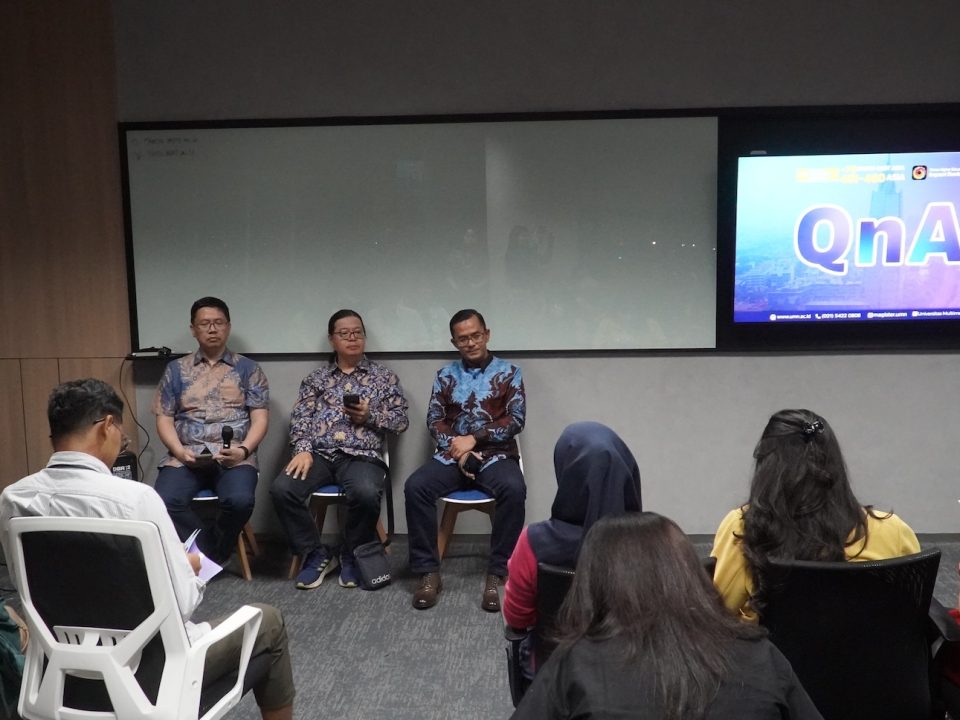
8 Time Management Tips for Freshmen
October 9, 2022
UMN and BI Institute Officially Launches The Teaching Practitioner Program
October 15, 2022
Want to become a director? master the following film major skills! (source: freepik)
Maybe in your head, the director’s job is to say ‘cut,’ fire the crew on the forehead, and hold on to the location. In reality, their responsibilities are heavier than you think.
A director is in charge of managing all the creative aspects of a production. They direct a film by turning the script into visuals while simultaneously leading the cast and technical crew. Because of the importance and the many responsibilities, the director is like a prophet in the studio.
Then what primary film skills can you master to become an excellent director like Joko Anwar? This article summarizes several major film skills you should master based on direct recommendations from Joko Anwar, as reported by Brilio.net and some other literature.
Read: Get to know the Film and Animation Major and its Prospects
According to Studiobinder, the director is responsible for managing all the creative aspects of the production. They turned the script into a video and directed the film, leaving the cast to the technical staff. Because of their importance and responsibility, directors are like studio prophets.
Mastering the skills below is a great place to start because it doesn’t require sophisticated equipment or a lot of capital, just passion, and determination.
Creative In Storytelling
A good director must be able to use his creativity to create unique and original stories. It can be achieved if the director understands what he wants and how to convey it through film.
The director’s job is to interpret the script’s message, mood, and visual style. Achieving these things requires imagination and a good sense of art.
Firm As Field Captain
Reporting from brilio.net in a summary of Joko Anwar’s tweets regarding the skills that a good director must master. In this Twitter tweet, Joko Anwar stated that as a leader in filmmaking, a director must be firm but not arbitrary towards the crew on duty. Balancing assertiveness and a comfortable working atmosphere is significant capital.
“The director must also be firm as the captain (not the king) on the field and protect. The crew and cast can number in the hundreds, the director must make the shooting atmosphere fun but still be serious and work hard,” he wrote in a tweet.
Have Good Leadership and Management Skills
The director doesn’t just interpret the script and tell funny stories. A director who can be trusted must be able to lead the team to the perfect result.
The bigger the film production, the bigger the risk, so getting used to working in a structured and efficient manner is essential. It would be great if the director and all department heads had well-written daily plans and goals.
To create an effective plan, you must understand how specific crew skills can contribute to the final product. It allows the director to estimate what is needed before hitting the record.
Understand workflow or workflow
Workflow or workflow is essential for a director. A solid understanding of workflow will make the process smoother.
Also in his tweet, Joko Anwar argued that the director must understand the post-production ‘workflow,’ namely the flow of material, even though there are usually post-production producers. At this stage, if the workflow goes wrong, it can destroy the record being captured.
Technical understanding and editing
With technical knowledge, directors can direct or understand how to achieve their creative vision. At least a director is knowledgeable and understands how to compose images in an uncomplicated and fluid way.
Martin Scorsese in The Masterclass, believes that a director must have acting experience to manage his actors effectively. However, this can be applied to all areas of expertise.
The experience of tasting other skills gives us the ability to understand how to think and empathize with the challenges that our team is going through.
Joko Anwar also said via his Twitter account that directors often accompany editors in editing films, so they also need to understand technical details and editing techniques. If the director knows the difference between 24 fps and 26 fps, that can cause problems.
Meticulous and Attention to Details
The work environment in the film industry is very busy with so many things going on at the same time. So always stay calm and alert before deciding anything. Take time to check the monitor, paying attention to colors, decorative details, actors’ costumes, and light characteristics.
It seems like a small thing, but in a busy schedule, one can easily forget the little things. As a director, make sure you are satisfied with what you see on camera before moving on to the shooting process. When you feel something needs to be corrected or added, pay attention to your instincts. Stupid questions like “Are the shots of cameras A, B, and C in sync?” to “Is this corner slightly skewed?” It should be noticed immediately.
Working in the film world is not only busy but also notoriously stressful. Beginning directors must pay more attention when working under high pressure. In small-scale productions with limited resources, reshoots or reshoots are strictly avoided. Therefore, the director must be thorough, careful, and careful.
Read: The Film Major and its Alternatives for Movie Lovers
The six points above are just basic skills that film directors must master. Of course, to become a director, there are still many other skills that must be learned, especially in technical matters. You can learn many technical things and hone your soft skills in the UMN film and animation department.
You can learn more about other exciting information through the official UMN website. On the website, you can also choose the online registration procedure according to your choice. Come on, register now and start your career with UMN!
Source:
brilio.net
umn.ac.id




